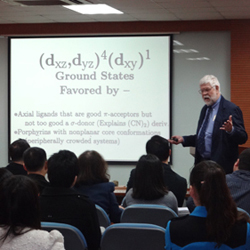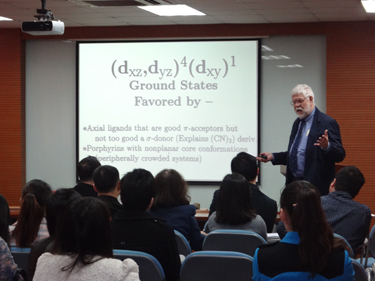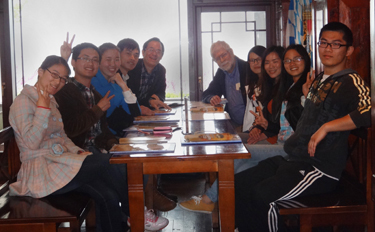

W. Robert Scheidt, William K. Warren Professor of Chemistry and Biochemistry, recently completed a visiting professorship for senior international scientists with the Chinese Academy of Sciences. He spent one month at the University of Chinese Academy of Sciences in Beijing giving seminars and serving as a mentor for many students.
Scheidt worked with several masters and Ph.D. candidates in group meetings, during presentations, and in many informal settings. These meetings gave the students the opportunity to practice their English and to ask Scheidt questions about their research. A few students have also kept in touch with Scheidt since leaving China and sent him more questions about their work.

In addition to his work at the university, Scheidt had the opportunity to take many cultural excursions with the students around Beijing, including trips to the National Museum of China and the Great Wall. The students were very excited to share their culture with Scheidt. “I found that the students knew a great deal about Chinese history,” he said. “I believe my visits to China have been mutually beneficial. I really enjoy the country and look forward to my next visit.” Scheidt will continue his work next year and will return to the university for another visiting professorship position in 2015.
The Chinese Academy of Sciences is a consortium of over 120 institutions, including 104 research institutes, five universities and supporting organizations, 12 management organizations and three other units. Visiting professorships for senior international scientists are awarded to scientists who are citizens of nations with formal diplomatic relations with China, were educated outside of China at the elementary school level, and who hold the rank of associate professor or higher. The purpose of the visiting professorships is to support collaborative scientific research opportunities in China for senior scientists.